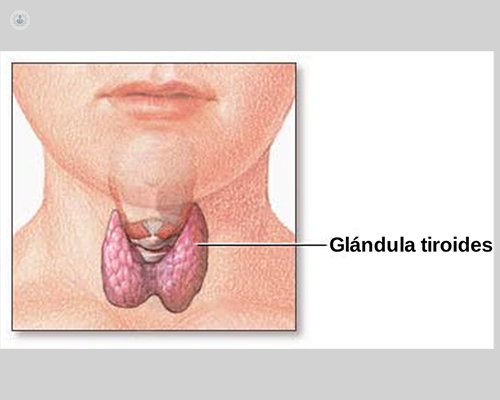All you need to know about the surgery of the thyroid gland
Written by:The thyroid gland is located in the anterior and inferior part of the neck in front of the trachea. It has two lateral lobes joined by an isthmus. On both sides back to the gland and are the recurrent laryngeal nerves that control the vocal cords.
The thyroid gland is responsible for producing some important hormones called T4 (or thyroxine), T3 and reverse T3 (inactive). These hormones control metabolism; in other words, how the body processes and distributes energy from ingested food.
If the thyroid produces too much hormone, hyperthyroidism symptoms appear:
Symptoms of hyperthyroidism:
- Restlessness, nervousness, emotionality, irritability, difficulty sleeping and constant activity
- Trembling hands
- Weight loss despite increased appetite
- palpitations
- Sweating, aversion to heat and increased thirst
- Diarrhea or need to go to the bathroom more often than usual
- breathing difficulties
- Skin problems such as hair loss and itching
- Menstrual changes: often the periods become very light or infrequent
- Fatigue and muscle weakness
- Enlargement of the thyroid gland in the neck (goiter)
If the thyroid produces hormones few, symptoms of hypothyroidism are present:
Symptoms of hypothyroidism:
- Fatigue
- Fatigue
- drowsiness
- Depression
- Sudden weight gain
- Dry Skin
- Thickening and hair loss
- Sensitivity to cold
- Muscle pains
- More frequent periods

Diagnosis of thyroid
To diagnose a thyroid problem, the patient must undergo examination specialist in Endocrinology. This will assess the general symptoms that may be related to the functioning of thyroid hormones, and perform a blood test to measure levels of these hormones. You may also need thyroid imaging tests (such as ultrasound or CT).
If the gland present a nodule puncture-aspiration fine needle practice thereof under sonographic to attempt a histopathologic diagnosis control.
Thyroid gland surgery
In some cases surgery may be necessary to remove the entire thyroid gland or a part of it. For example:
- If the increase in the size of the gland presses the trachea and causes breathing difficulties or other hassles or complications because of its size.
- If you can not tolerate the medication for the alteration of thyroid hormones serious side effect.
- If you can not or do not want to receive radioiodine therapy.
- If there is presence of cancerous thyroid nodules, puncture cytology is inconclusive or nodule continues to grow.
Types of surgery minimally invasive thyroid gland
There are several different types of thyroid surgery such as:
- Biopsy or lumpectomy: when only a small part of the gland is removed.
- Hemithyroidectomy: when half of the gland is removed.
- Subtotal thyroidectomy: when it is only a small part of the thyroid tissue after surgery.
- Total thyroidectomy: when all thyroid tissue is removed.
. in the lower neck. The skin and muscle are removed to expose the gland. The incision is usually made so that it is in a fold of skin on the neck, to make it less visible.
The blood supply to the gland is interrupted by ligating the vessels irrigate and then, the surgeon removes the gland or any part thereof.
During the operation, the surgeon is careful to identify and avoid injuring the nerves that go to the larynx and vocal cords, which are located just behind the thyroid gland. If these nerves are damaged, the ability to speak, swallow or breathe can be seriously affected. The use of a monitoring system of nerve integrity may help the surgeon identify these nerves, monitor them and confirm that they have not been damaged during surgery.
.
The main advantage of thyroid surgery is that it can alleviate some or all of the symptoms experienced by the patient.

